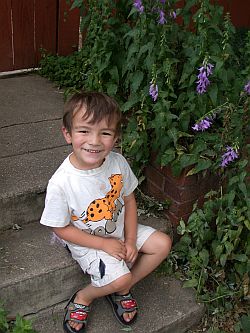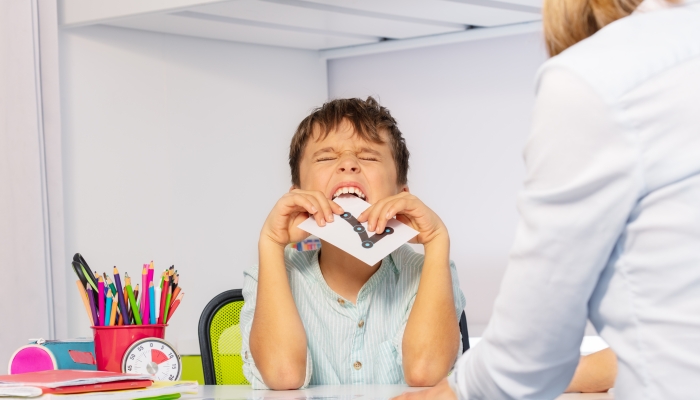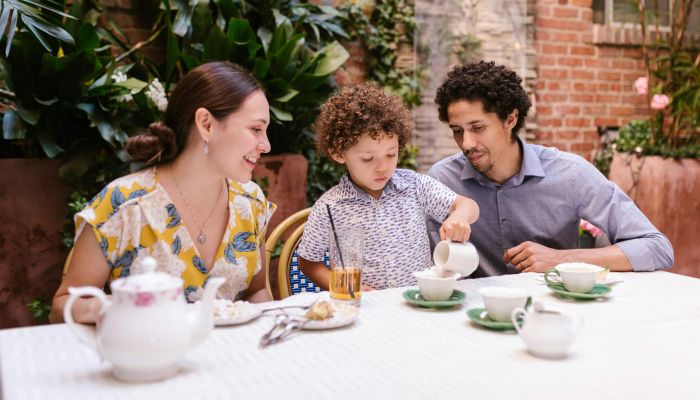Battling Separation Anxiety

Is your child clingy? Do people often say to you, “You’ve really got your arms full,” or “That kid’s got a great set of lungs!” while you try to release yourself from a screaming child in public?
We’ve all been there. It’s normal, it’s most likely age appropriate (peaking around the age of two), and it’s called Separation Anxiety.
But just giving it a name does not make it any easier to deal with. Seeing your little one cry every time you try to head for the door can be really difficult. Here are a few tips to help your child ease the transition from a clingy little baby to an independent and happy big kid.
The Do’s
-
- Slowly increase the amount of time with someone else (like grandma or a babysitter), starting with just a few minutes with both you and the other person and working upwards until your child can spend long stretches of time without you in the room.
-
- Give your child an object that he can take with him to comfort him while away from you.

- Give your child something to remind him of you. If your child has vision this may be a picture of you or you can give them something special, like your bracelet or scarf (that you don’t mind losing, of course!). If your child has sensory disabilities, a piece of cloth sprayed with your perfume may work well.
- Develop a transition routine to give your child time to prepare himself for the new environment. It works the way a bedtime routine helps to let the child know that it’s time to sleep (nighttime separation anxiety is a thing too) and gives him a chance to prepare himself. Our transition routine included letting our son pick out things to take on his outing, getting his shoes on, and sitting on the porch.
- Cold turkey is always an option. Mom gives a happy, positive, “Bye-bye! I’ll see you later!” and leaves.
And of course, we can’t forget…
The Don’t’s
- Don’t have someone come to get your child. My son was always more comfortable with me leaving him someplace than with him being taken away from me. If I dropped him off and then left he was much less likely to cry than if he was taken away from my presence.
- Don’t sneak off. This would upset my son because he didn’t get a chance to say good-bye.
- Don’t leave the situation undefined. Letting him know that I would be back soon, or when exactly he would get to see me again helped my son a lot.
- Don’t ignore their feelings. Naming his feelings for him, especially when he was pre-speech, helped calm my son. It seemed to let him know that I understood what he was feeling, and helped him develop a vocabulary for those feelings when he did start talking.
This last point has actually helped in a lot of different situations. You may already do it with your child when you see him smile and you say, “Oh, what a happy boy!” or when he cries you may say, “Poor guy, you’re so sad.” When my son would start crying because he knew he was leaving, I would say (trying to match his intensity and tone), “You’re sad because you’re leaving mommy! And you’re angry too! You don’t want to go! You want to stay with mommy! But you’ll see mommy soon. It will be okay.”
It seems kind of forced and may even sound mocking to your ears, but to the child you’re letting him know that you can understand him, and from the tone of your voice (the intensity matching his tone) that you can feel his pain too. By following it up with the soothing phrases, then you show yourself being calmed by those reassurances. Maybe it only really worked because it surprised my son to hear me talk so loudly when he was screaming and crying, but it worked, and that’s the important thing!

Related Posts

Behavior
Understanding Intermittent Explosive Disorder in Children
Are you worried about your child’s unexpected aggression and explosive behaviors? Learn how to support a child with intermittent explosive disorder.

Behavior
5 Emotional Regulation Activities for Kids
Want to teach your child how to regulate emotions? Here are emotional regulation activities for kids that can help!

Behavior, Special Needs
5 Tips for Dining Out with Children Who Have Sensory Sensitivities
Worried about dining out with sensory sensitivities? Try these tips for less stress and more fun the next time you take your family out to eat.